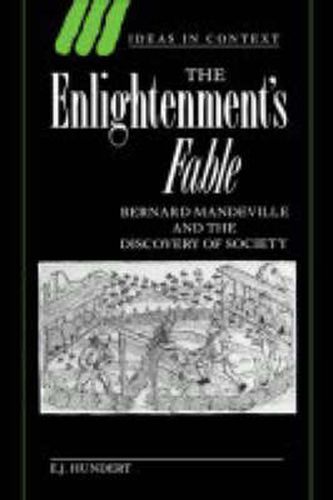Readings Newsletter
Become a Readings Member to make your shopping experience even easier.
Sign in or sign up for free!
You’re not far away from qualifying for FREE standard shipping within Australia
You’ve qualified for FREE standard shipping within Australia
The cart is loading…






The apprehension of society as an aggregation of self-interested individuals is a dominant modern concern, but one first systematically articulated during the Enlightenment. This book approaches this problem from the perspective of the challenge offered to inherited traditions of morality and social understanding by Bernard Mandeville, whose infamous paradoxical maxim private vices, public benefits profoundly disturbed his contemporaries, while his The Fable of the Bees had a decisive influence on David Hume, Jean-Jacques Rousseau, Adam Smith and Immanuel Kant. Professor Hundert examines the sources and strategies of Mandeville’s science of human nature and the role of his ideas in shaping eighteenth century economic, social and moral theories.
$9.00 standard shipping within Australia
FREE standard shipping within Australia for orders over $100.00
Express & International shipping calculated at checkout
The apprehension of society as an aggregation of self-interested individuals is a dominant modern concern, but one first systematically articulated during the Enlightenment. This book approaches this problem from the perspective of the challenge offered to inherited traditions of morality and social understanding by Bernard Mandeville, whose infamous paradoxical maxim private vices, public benefits profoundly disturbed his contemporaries, while his The Fable of the Bees had a decisive influence on David Hume, Jean-Jacques Rousseau, Adam Smith and Immanuel Kant. Professor Hundert examines the sources and strategies of Mandeville’s science of human nature and the role of his ideas in shaping eighteenth century economic, social and moral theories.